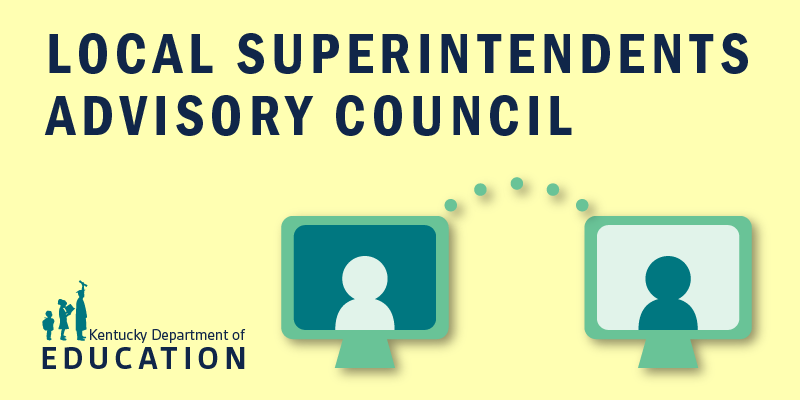 The Kentucky Department of Education’s (KDE’s) School Counselor Advisory Council (SCAC) was joined by the Commissioner’s Student Advisory Council (SAC) during the counselors’ June 2 meeting to discuss the students’ advocacy work around mental health.
The Kentucky Department of Education’s (KDE’s) School Counselor Advisory Council (SCAC) was joined by the Commissioner’s Student Advisory Council (SAC) during the counselors’ June 2 meeting to discuss the students’ advocacy work around mental health.
“It’s a couple tough years and school’s tough enough on students to begin with. We want to make sure students have an environment that’s conducive to learning that allows them to rest their brain and truly work to better themselves mentally so they can better themselves academically,” said Roxanne Lockard, a recent graduate of Craft Academy (Great Crossing High School, Scott County).
In the fall of 2021, students on the SAC partnered with Lt. Gov. Jacqueline Coleman, Kentucky’s regional education cooperatives, the Department for Behavioral Health, Developmental and Intellectual Disabilities at the Kentucky Cabinet for Health and Family Services, and the Division of Family Resource and Youth Services Centers to create the Student Mental Health Action Summits. The roundtable summits were formed to hear from students directly and collect data that could be used to better address students’ mental health.
The students are currently speaking with education stakeholders on their recommendations that came from the summits and plan to present in front of the Kentucky General Assembly Interim Joint Committee on Education this summer.
There were 10 events held across the Commonwealth – nine in-person in education cooperative districts, and one virtual – with nearly 300 students attending overall. At each event, student facilitators framed the issue being discussed for attendees and presented basic student mental health data.
Members of the SAC analyzed every response to the questions asked during the summits, and came up with 10 recommendations to improve student mental health in Kentucky schools.
The recommendations are:
- Six excused mental health days per school year;
- Incorporating student voice into all levels of decision-making through tiered interventions and instructional methods;
- Allocating funding for a licensed mental health professional to be on school campuses at all times in every K-12 school;
- Peer mentoring for students who aren’t comfortable talking to an adult;
- Making suicide prevention materials and resources available in every classroom and administrative office, and implementing regularly updated suicide prevention curriculum at least twice a year;
- Requiring updated evidence-based and discussion-based mental health curriculum to foster a stigma-free environment;
- Using trauma-informed curriculum to be mindful and respectful when addressing the needs of students regarding eating disorders;
- Recognizing and respecting students’ preferred pronouns and using gender inclusive language in schools;
- Requiring schools and/or districts to provide student mental health check-ins that allow students to express their emotions and needs confidentially at least once a month; and
- Scheduling time throughout the day and year to account for mental health and give academic and transitional breaks.
Sarah Akin, a school counselor representing Christian County, shared her excitement that KDE and Coleman followed the students’ lead on the initiative.
“Being at [one of the] Mental Health Action Summits was absolutely incredible because it was all student-led,” she said. “I literally sat in the corner and let them do their thing. It was so refreshing to think that if we could put the world in these kids’ hands, we’re going to be okay. It was great to hear their recommendations, their ideas, their thoughts.”
Students shared that several of the recommendations could be implemented without legislative action, such as peer mentoring or mental health breaks.
“At the beginning of each of my AP Language classes, we would spend 10 minutes just to talk about something we were excited for or something we wanted to share … I was really excited one day to share with my class that I had bought my first set of tires for my car,” said Soleila Elliot González, a recent graduate of Ballard High School (Jefferson County). “Over time, that’s an opportunity to build relationships and create rapport … It was a time of getting to listen and share. Moments like that can be really valuable.”
Equity Dashboard
Florence Chang, the strategic analyst of school learning at KDE shared information on the equity dashboard, which provides live data on the under- or overrepresentation of various demographic groups on several indicators that schools and districts can access.
Developed by KDE’s offices of Education Technology and Teaching and Learning, the dashboard is designed to offer a “big picture” look to help schools and districts identify areas needing further attention.
The equity dashboard utilizes risk ratios to examine the equity of outcomes between different student groups, such as economic status or students of color. When a group experiences inequity in outcomes, the equity dashboard identifies them as at-risk.
Chang said the equity dashboard is a good example of making sure people use “the right level data, at the right time, with the right people.” Chang suggested counselors “calendar out” when to use the data in order to effectively use the dashboard.
In other business, the council:
- Learned more about the June 10 “Counselor Cadre” focusing on celebration and proactive planning for the upcoming school year;
- Was informed of the Use of Time survey update that will be released on July 14; and
- Heard updates from KDE about the social-emotional learning framework, Calming Space grant and meetings for 2022-2023 school year.




Leave A Comment